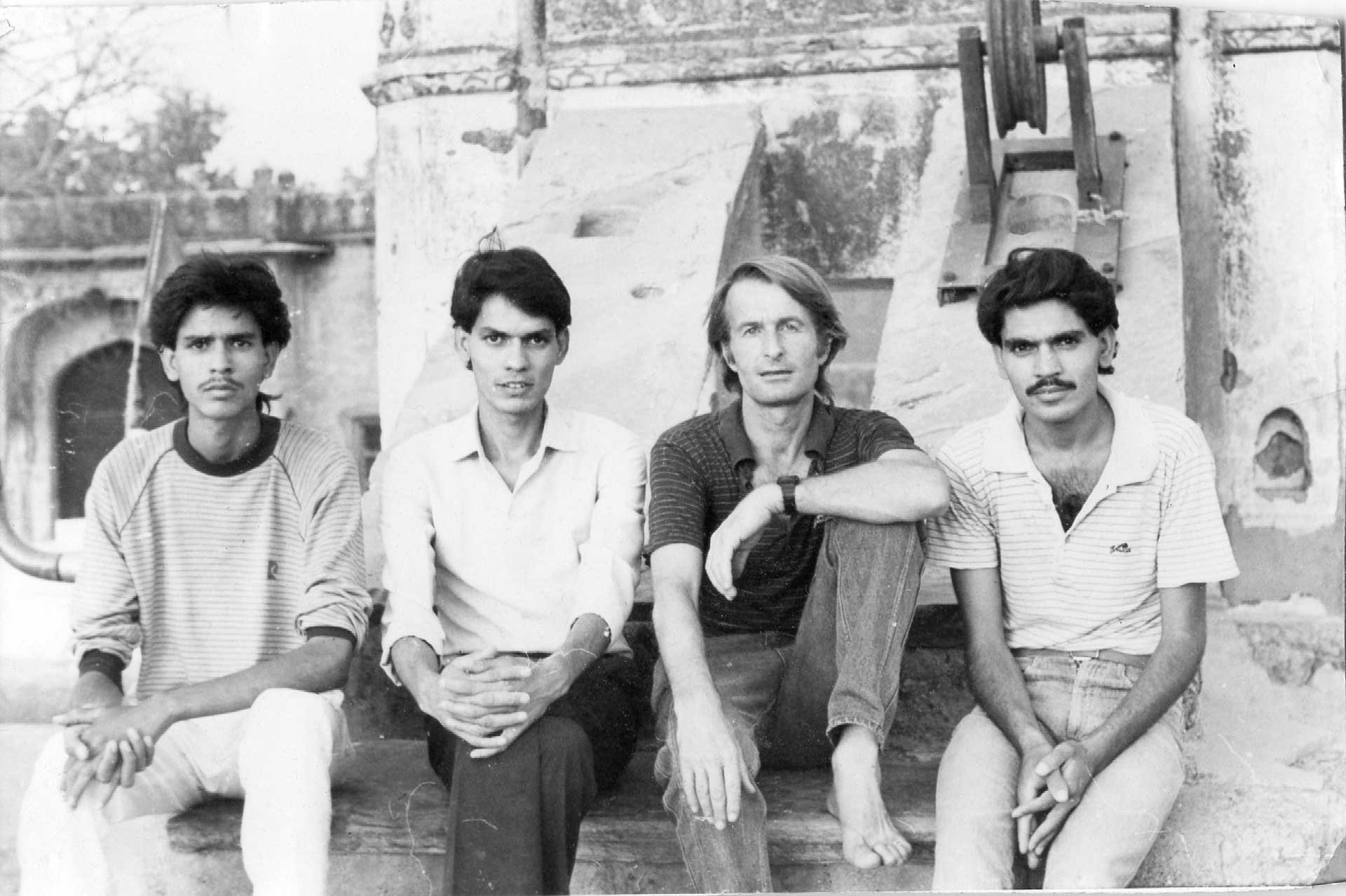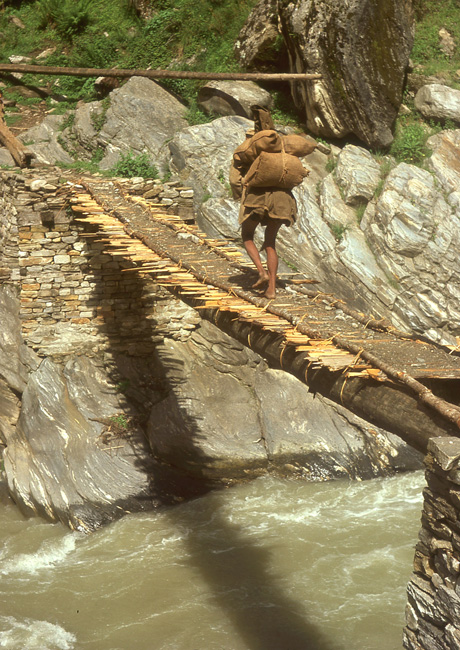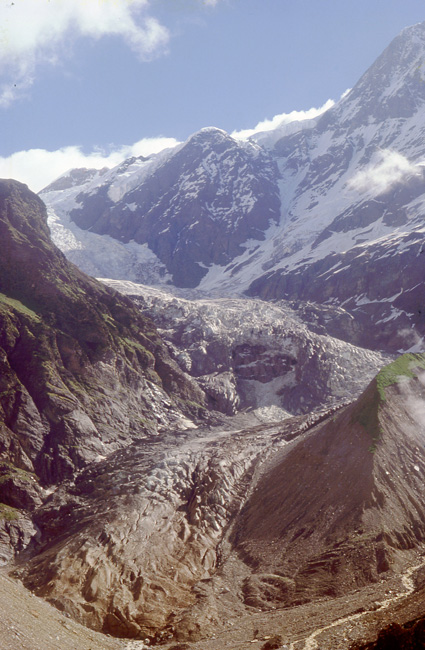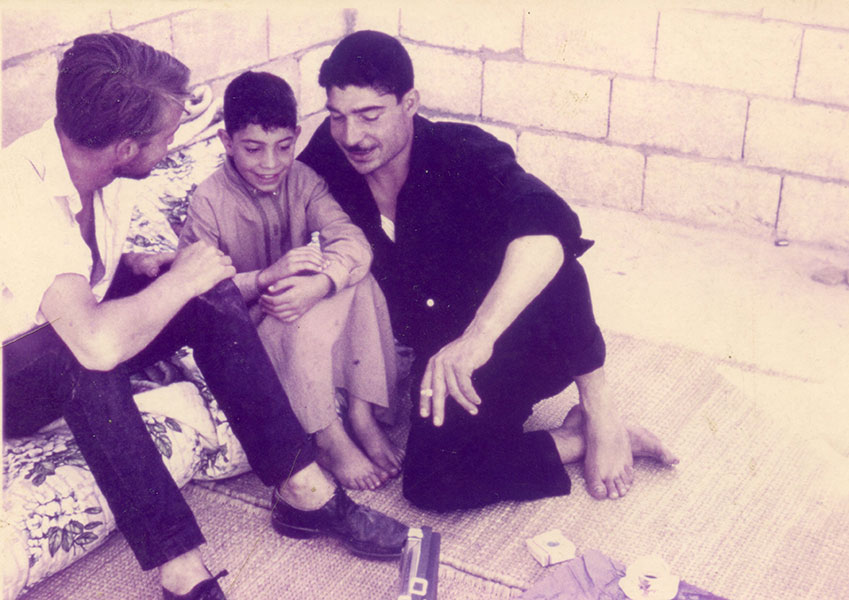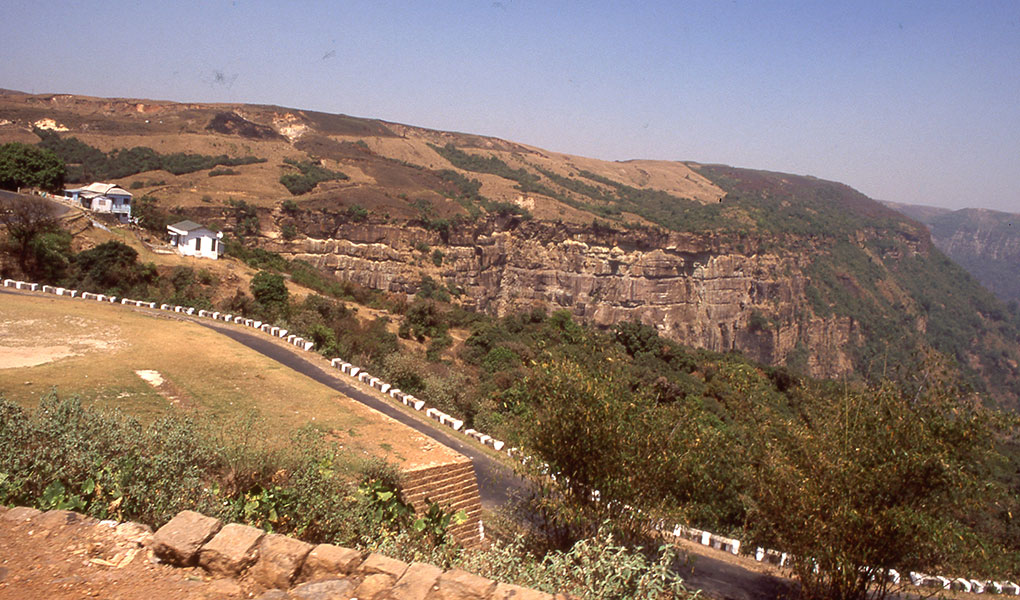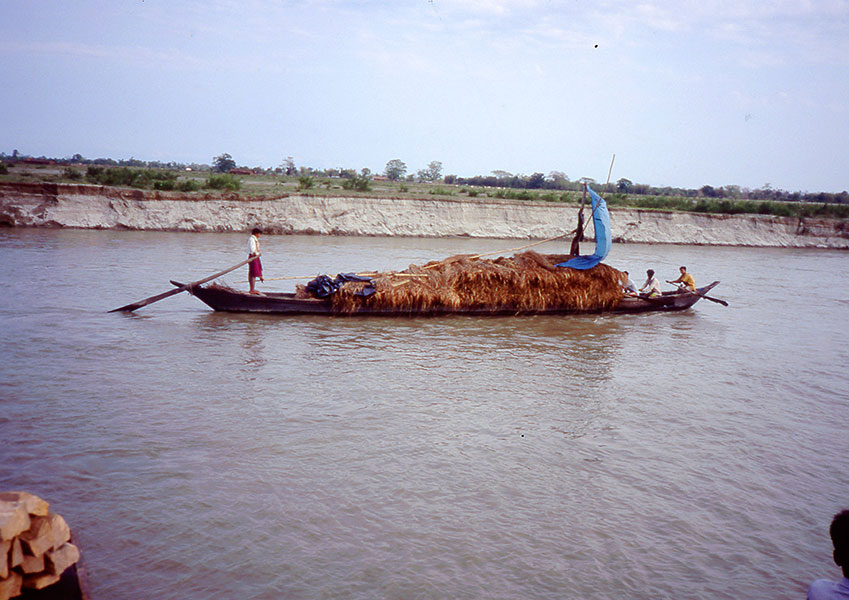10. In Search Of Eternal Snow

9. NK Discovers Carpets – 2
June 11, 2020
11. The First New Train To Pakistan
July 9, 2020W hile examining murals in nearby Bissau, in 1980, I met Arvind Sharma and, through him, his brothers. Arvind, Ravindra 'Rabu' and Ram Ratan 'Munji' also lived in Churu. Despite an enthusiasm for cricket (one I never shared!), they took an interest in exploring Shekhawati, less in the murals. Sometimes one or other came on trips in search of painted buildings. I often ate at their home, borrowed from their father's collection of books: an ex-headmaster, he had a considerable hoard.
My mural research was funded partly by photojournalism for Indian magazines. Once several articles were published, an editor might agree to grant me basic expenses to cover some subject she (it was usually a woman) found interesting. These forays were always more fun in company. Arvind was teaching, Munji still at school but Rabu was studying English and had a fair amount of free time. We travelled together on several of those projects.
In 1984, as it reached high summer in Churu – which, at 50 degrees, is high – I suggested hiking to the Pindari glacier in the Himalayas. The editor agreed to advance reasonable expenses, an amount which Rabu and I reckoned that, with care, could cover us both. We left despite his father's warning that eastwards on a Monday is inauspicious. One learns: sleeping on the top bunk in the train, I put my finger bloodily into the fan and money I expected in Delhi had not arrived.
In the foothills we ate lychees and slept out above Nainital, waking to overlook the lakeside church where my grandparents married. A bus dropped us at Bharari in a dramatic downpour. There the trek started with following up the Saryu River, the day growing ever hotter, until we abandoned the effort in favour of the chilly water. The road deteriorated into a steep track up to Loharkhet with its government bungalow; these cheap rest houses and the occasional little tea shack (some serving food) punctuated the route. Monday's curse faded; in future when rain fell it was usually after we'd found shelter or before leaving it.
The second day was toughest. The bungalow was out of food, so there was no breakfast. Empty, we had to cross a high ridge, climbing 1000 metres in 10 km. The woods echoed with whistling thrushes and cuckoos. From the pass the next bungalow, Dhakuri, and lunch lay only 2 km ahead, downhill: it, too, was out of food. Starving, we worked across the hillside down towards the Pindar river eating wild strawberries, which sustained us to Khati through deep, damp forest, with giant scarlet-flowered rhododendrons and colourful wildlife. Rabu was impressed by long-tailed blue magpies; I preferred the more-modest riverside plumbeous redstarts, dark blue-grey with a red tail. Overhead soared great vulture-like Lammergeiers and a crested serpent eagle crossed the valley, a snake struggling in its talons.
Khati's bungalow was taken by saffron-clad Pilot Baba and his followers, who had been eating their way ahead of us. When we arrived he was engaged in an argument, and was loudly affirming that 'Pilot Baba is best teacher!' There remained the tiny Himalaya Hotel, a single room and excellent food.
Perhaps today one can drive to the glacier. We were lucky. Then tourism was light, most trekkers adventurous Bengalis. Khati was the last village on the ascent, so we bought gur, onions and rice before continuing towards Dwali. The track wound up through the forest up a steep valley with spectacular waterfalls plunging down its sides to join the grey-green torrent of the river roaring below. My notebook is full of descriptions of unknown birds. Amongst bamboos and ferns rose tall, scented white lilies. Not all was sweetness and light; Rabu noticed blood running down one of my socks. Under my trouser leg were fattening leeches. They caused no pain. He had some, too. After cleaning up the mess, we continued more carefully, avoiding them as they reached out, waving from plants, in the hope of catching a victim.
Further on, a convenient tea place guarded a ricketty bridge. Dwali preside over a sangam, a tributary joining the Pindar. It's bungalow had room and served a delicious sabji of bracken-like fern. I never tasted it again but remember it still.
Leaving next morning after six, we continued climbing, cloud often sinking into the valley to obscure the view, then rising to reveal snowy heights against the blue. Sometimes the way crossed steeply-sloping snow. At Phurkia they gave us dal with roti and a plaque commemorated two fallen Japanese climbers. Beyond came a steep-sided ice-cut valley, its alpine grassland spread with bright flowers and grazed by sheep. With altitude came new birds - snow pigeons, rose finches and bright-billed choughs and there were tiny white-flowered bushes like rhododendrons.
Ahead, the glacier occasionally appeared through parting cloud. It was close. The night would be cold. We laid out our sleeping bags in the shelter of a pair of rocks and Rabu set to cook. The menu survives: 'rice, onion & a chicken cube – horrible'. At that altitude the rice barely softened, but there was nothing else! The cloud cleared to reveal a crescent moon.
Next morning we sought out a good view of the glacier, a steeply-flowing rice of grubby ice. Cloud came and went, allowing the snow peak, Nanda Kot to soar briefly into the sky.
The descent returned brought back reality. Drizzle set in. It was 6th June. In Dwali two Punjabi students, one a Sikh, worried over news from Amritsar. It was a disturbed time in the Punjab and they had heard rumours that the army had attacked the Sikh Golden Temple, where rebels were sheltering. We borrowed a transistor. All India Radio confirmed there had been an attack with few casualties and little damage. The Sikh extremist, Bhindranwala was dead, some of his followers arrested. The boys turned to the BBC, which spoke of 250 dead. Already they reported repercussions. This was serious.
Parting next morning, we descended regretfully into the heat of the plains.

